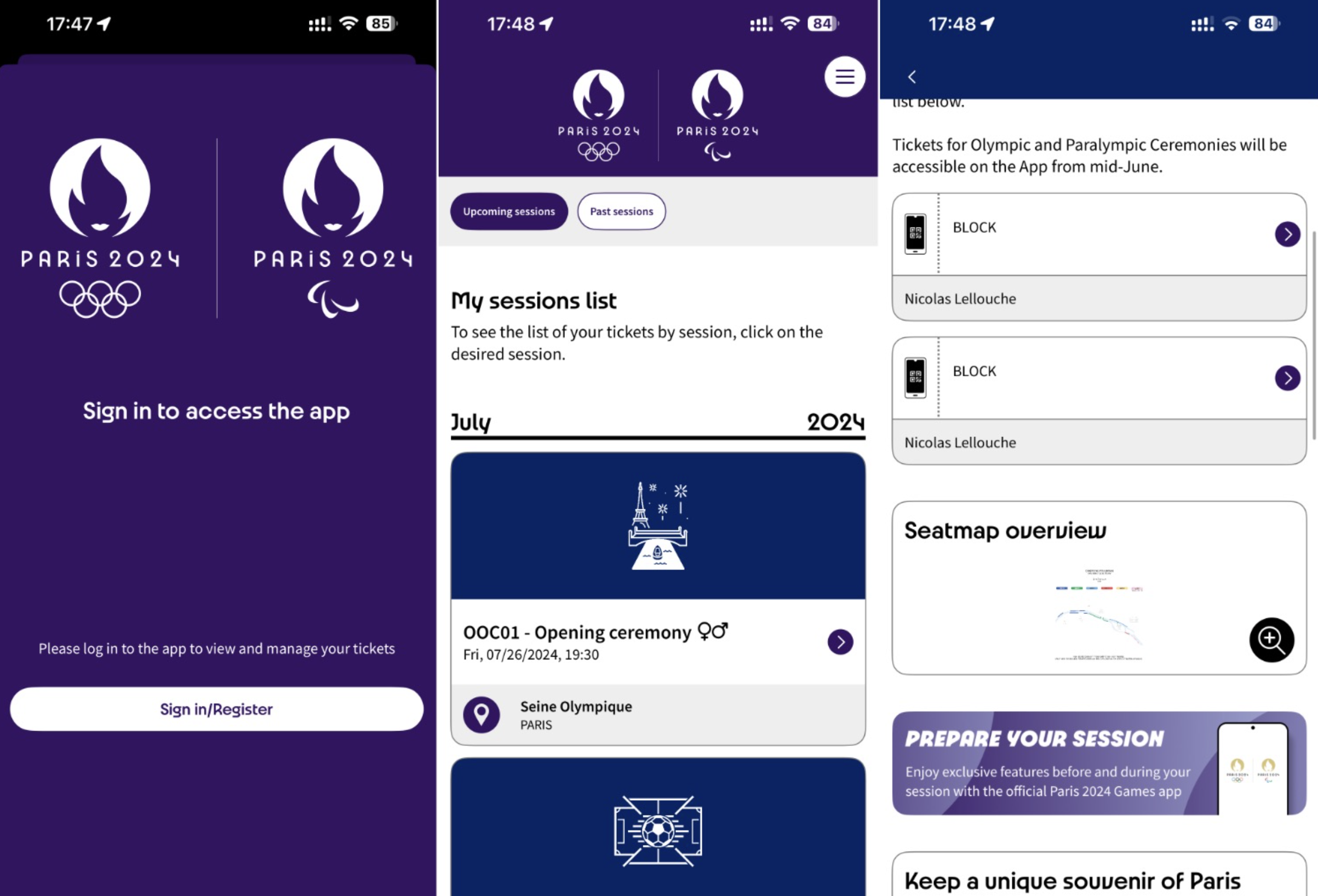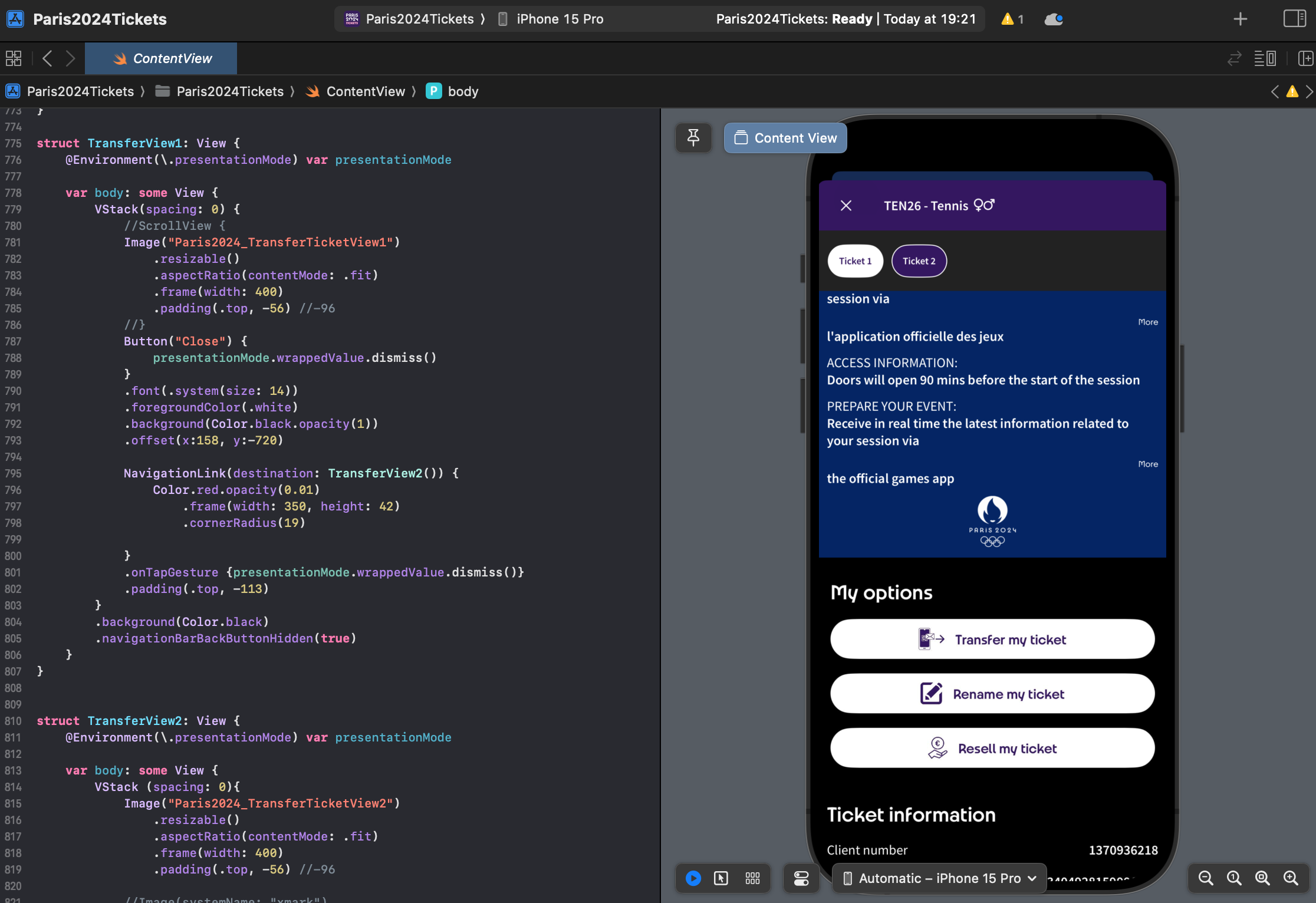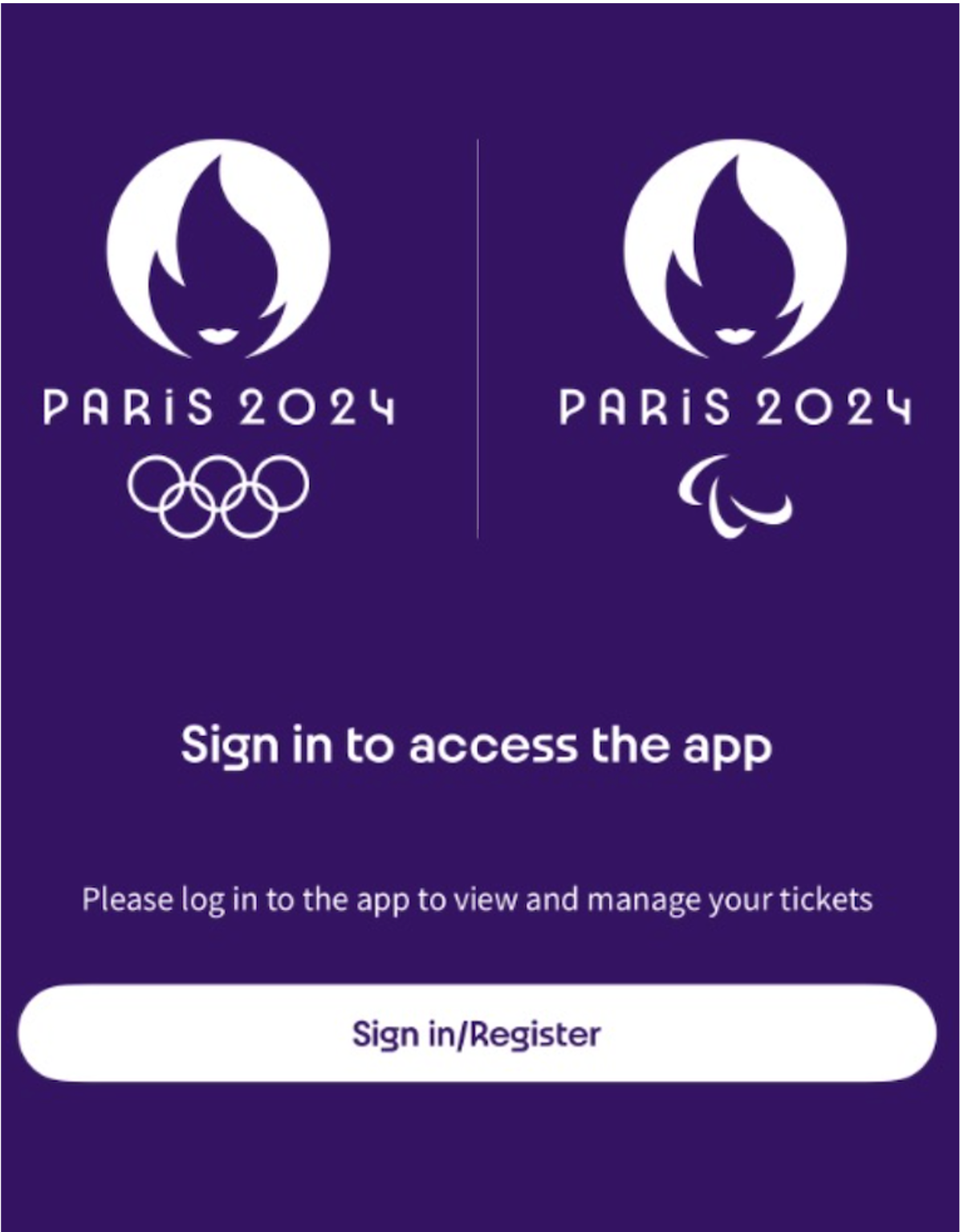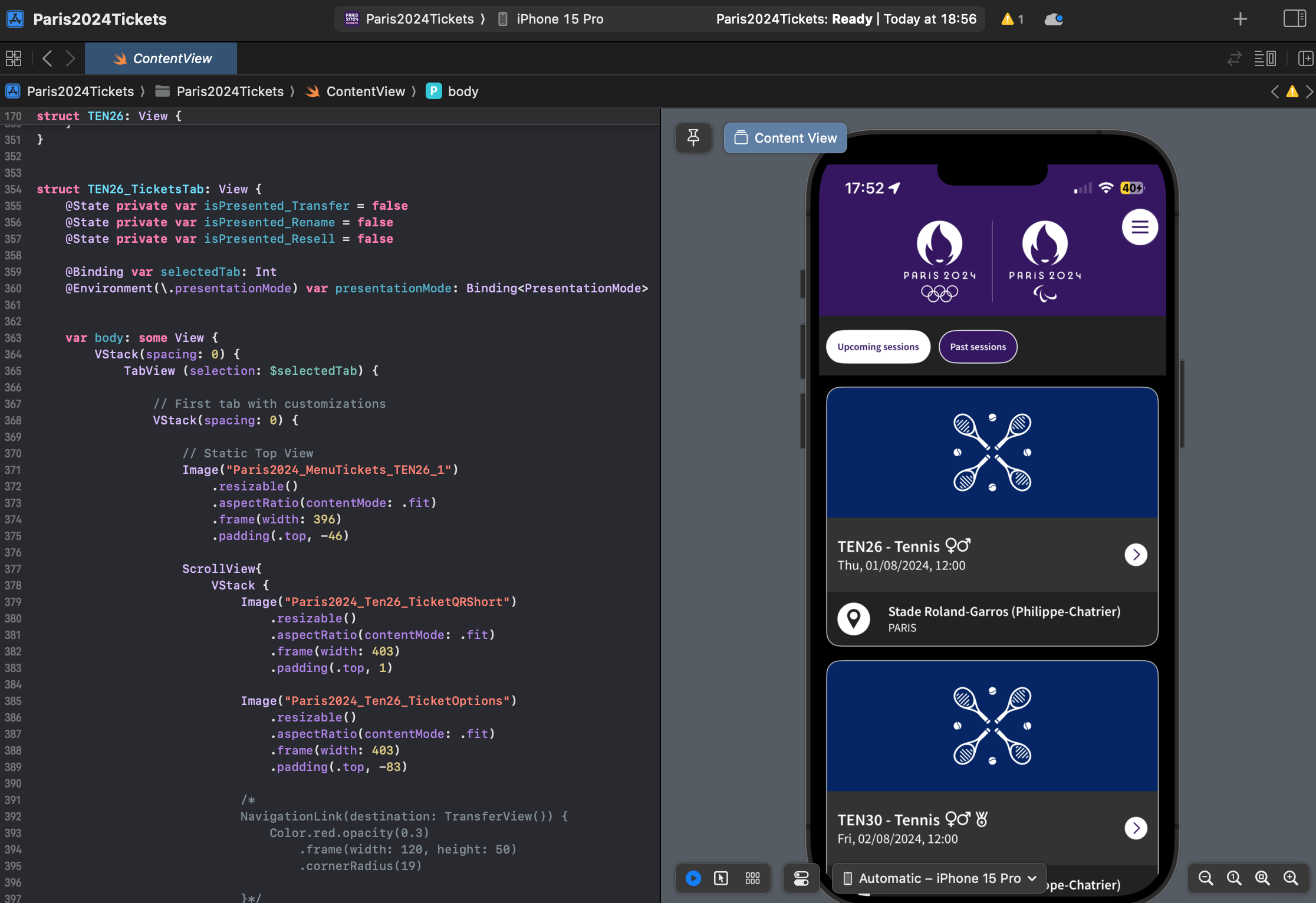
Coding Project - Paris’24 Olympics App
PROJECTS · COMPUTER SCIENCE
Computer Science, Coding Project
100h
June 2024 - July 2024
INTRO
Project Overview
I designed a Swift-based iOS app which replicates the Paris 2024 Olympics official app, designed specifically for older, unsupported iPhone models. It provides essential features such as ticket display, reservation access, and event schedules, ensuring that users with legacy devices can still enjoy a seamless Olympic experience.
SKILLS
Fields of Expertise
Problem Solving & Algorithmic Thinking:
Data Structures & Algorithms:
App Development:
Coding (Swift/iOS):
Complexity: ★★★☆☆
Tools: Swift, iOS Dev, XCode
Project Type: Personal Project
01
INTRO
CHAPTER
___ INTRO
Project Motivation
The The official Paris 2024 Olympics app requires a recent iOS version, making it inaccessible to users with older iPhones. This project was developed to bridge that gap, offering a lightweight, backward-compatible alternative. By recreating key functionalities like ticket management and reservation access, the app ensures that users can still attend events without upgrading their hardware. The goal was to optimize performance for older devices while maintaining a similar user experience and interface to the official app.
02
FEATURES
CHAPTER
___ FEATURES
Key Features
The app was designed to support older iOS versions (e.g., iOS 12-14) by using lightweight UI components and avoiding newer APIs, ensuring smooth performance on legacy devices.
___ KEY FEATURE 1
Backward Compatibility & Performance Optimization
__ KEY FEATURE 1
Backward Compatibility & Performance Optimization
__ KEY FEATURE 2
Secure Ticket Storage & QR Code Retrieval
. . .
__ KEY FEATURE 3
Learning and Adapting to SwiftUI & Xcode
___ KEY FEATURE 2
Secure Ticket Storage & QR Code Retrieval
Implemented offline storage of event tickets using Core Data and original ticket retrieval, allowing users to display tickets in any place, even without an internet connection
____ KEY FEATURE 3
Learning and Adapting to SwiftUI & Xcode
Developing the app required learning Swift, SwiftUI, and the Xcode environment from scratch. Understanding Swift's syntax and structure while adapting to SwiftUI’s declarative UI approach was a significant challenge. Designing app menus, creating responsive layouts, and implementing interactive elements like swipe gestures and navigation transitions required extensive experimentation.
Connecting the front-end UI to the back-end logic using data bindings and state management posed additional hurdles, as SwiftUI handles UI updates differently than traditional imperative frameworks. Debugging and optimizing performance in Xcode, especially for older devices, also required learning to use profiling tools like Instruments. Overall, mastering SwiftUI and Xcode while ensuring a seamless user experience on outdated hardware was both a technical and learning-intensive challenge.
SEE MORE PROJECTS
MATH, PHYSICS & ENGINEERING PROJECTS
COMPUTER SCIENCE PROJECTS
ML & AI PROJECTS
QUANT FINANCE PROJECTS














